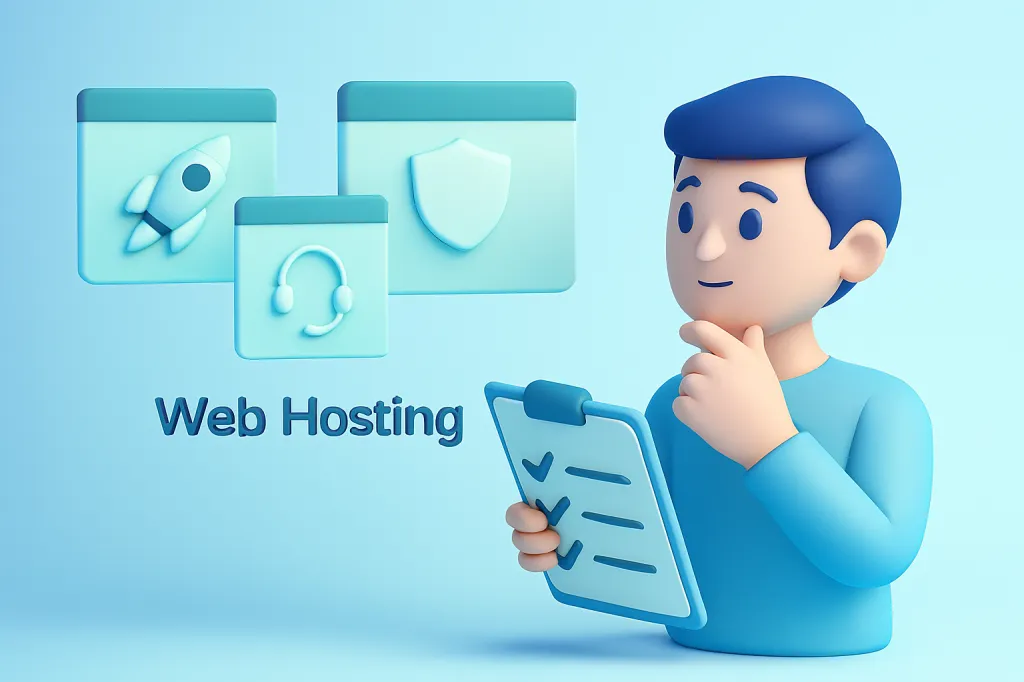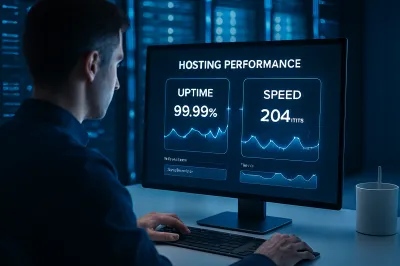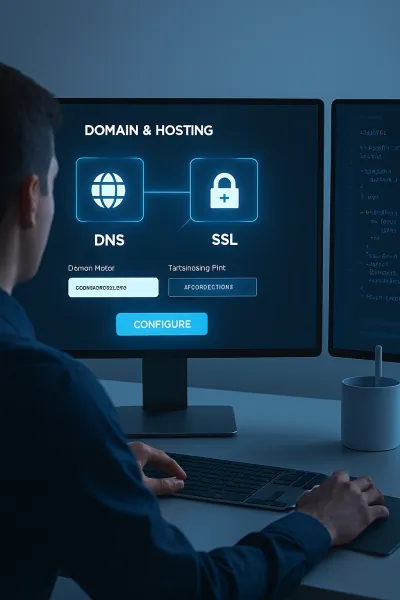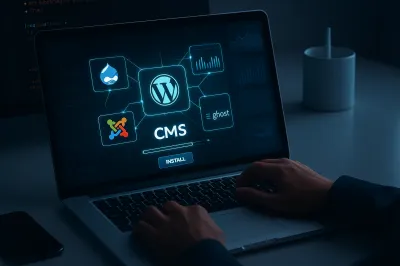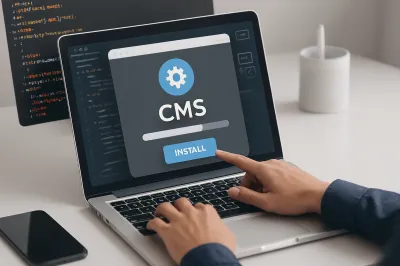With hundreds of web hosting companies all claiming to be the "best," "fastest," and "most reliable," choosing the right one can feel overwhelming for a beginner. Your web host is the foundation of your online presence; a great choice leads to a fast, secure website, while a poor one can result in constant downtime, slow speeds, and frustrating support experiences.
Making the right decision from the start can save you countless headaches down the road. To help you navigate the options, we've created a straightforward checklist of the 7 key factors you must consider when evaluating and choosing the perfect web hosting provider for your needs.
1. Performance and Speed
Website speed is no longer a luxury—it's a necessity. It's a critical factor for both user experience and SEO rankings. A slow website will drive visitors away and cause Google to rank you lower. Look for hosts that offer:
- SSD Storage: Modern Solid-State Drives (SSDs) are significantly faster than traditional Hard Disk Drives (HDDs). Ensure your plan includes SSD storage.
- Server Location: Choose a host with data centers located geographically close to your primary audience. The shorter the distance data has to travel, the faster your site will load.
- Optimized Technology: Look for modern software stacks, such as LiteSpeed web servers (which are faster than traditional Apache) and the latest versions of PHP.
2. Uptime and Reliability
Uptime is the percentage of time your website is online and accessible to visitors. If your website is down, you're losing traffic and potential customers. The industry standard for good uptime is 99.9% or higher. Anything less is unacceptable. Reputable hosting companies will offer an "uptime guarantee" and be transparent about their performance.
3. Customer Support
When something goes wrong (and eventually, it will), you need fast and knowledgeable support. For beginners, this is arguably one of the most important factors. Before you buy, check:
- Availability: Do they offer 24/7 support? Problems don't just happen during business hours.
- Channels: What support channels are available? Live chat is often the fastest and most convenient, followed by phone and ticket-based email support.
- Reputation: Read recent, real-world reviews about their support team. Are they helpful and quick to resolve issues, or do users complain about long wait times and unhelpful staff?
4. Security Features
A good web host should be your first line of defense against security threats. Don't leave this entirely up to your own efforts. Essential security features that should be included with your hosting plan are:
- Free SSL Certificate: Essential for enabling HTTPS and securing your site.
- Automatic Backups: Regular, automated backups are a lifesaver in case your site gets hacked or a technical issue occurs.
- Malware Scanning: Proactive scanning to detect and remove malicious code.
- Web Application Firewall (WAF): To filter out malicious traffic before it even reaches your site.
5. Scalability (Room to Grow)
Your needs today might not be your needs a year from now. Your website traffic will hopefully grow, and your hosting plan needs to be able to grow with it. A good provider makes it easy to upgrade your plan (e.g., from a basic Shared plan to a more powerful VPS plan) with minimal or no downtime. Avoid hosts that make it difficult or expensive to scale up your resources.
6. Pricing and Transparency
Web hosting prices can be deceptive. Many companies lure you in with extremely low introductory prices that skyrocket upon renewal. When comparing costs, always look for:
- The Renewal Price: This is the price you'll be paying for the long term. Don't be fooled by a $1/month offer that renews at $10/month.
- Included Features: Does the price include a free domain for the first year, a free SSL certificate, and email accounts? Or are these expensive add-ons?
- Money-Back Guarantee: A reputable host will offer at least a 30-day money-back guarantee, giving you a risk-free way to test their service.
7. User-Friendliness (Control Panel)
The control panel is the dashboard where you'll manage your hosting account, domains, emails, and website files. For beginners, an intuitive and easy-to-use control panel is essential. The most popular and user-friendly control panels are cPanel and Plesk. Most hosts use one of these, but some have their own custom-built panels which can vary in quality.
Conclusion
There is no single "best" web hosting provider for everyone; there is only the best provider for your specific needs. Before you start shopping, take a moment to consider your budget, your technical comfort level, and the expected traffic for your website. By using these seven factors as your guide, you can confidently compare your options and make an informed decision that sets your website up for success from day one. ✅
